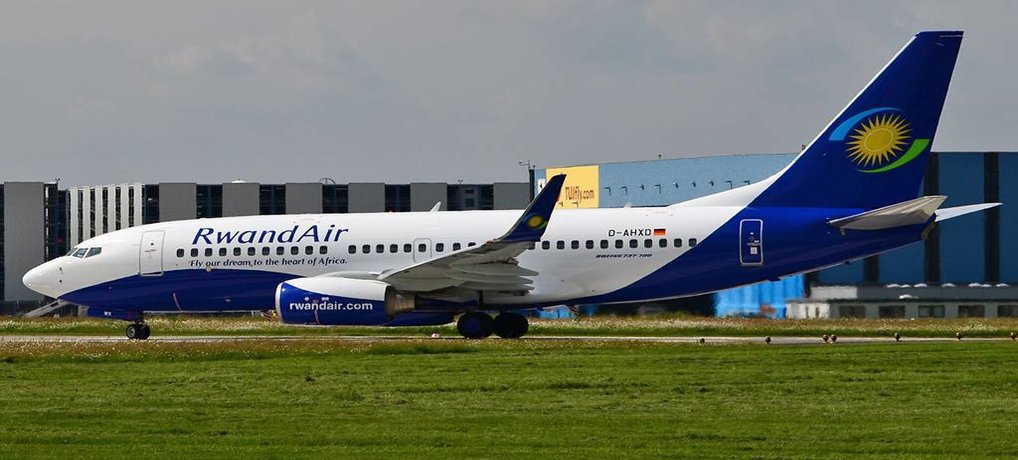
 The Periscope Report trade related news round-up from a variety of sources for 07th April 2017.
The Periscope Report trade related news round-up from a variety of sources for 07th April 2017.
Airlines pull trigger on Zimbabwe
THE world’s largest airlines have started tightening screws on liquidity-starved Zimbabwe owing to a worsening foreign currency crisis that has resulted in a huge backlog of unremitted ticket payments with some now outstanding for over 140 days, the Financial Gazette can exclusively reveal. At least five global airlines namely Qantas Airways, Lufthansa, KLM Royal Dutch Airlines, Air France and Delta Airlines have informed their travel agents worldwide that they have to bill their passengers in cash or stop accepting bookings altogether to avoid non-settlement of obligations from Zimbabwe’s banks, which are battling an acute shortage of foreign currency. What this effectively means is that their tickets can only be bought using hard cash, excluding bond notes, which can only act as a medium of exchange for domestic transactions.
Nestlé [Zimbabwe] targets low end market, exports
Managing director of Nestlé Zimbabwe, Ben Ndiaye, said since 2011 the group has invested $30 million in Zimbabwe. “Our ambition is to make sure that by year five this [affordable product lines] will represent 50% of our total revenue. This year we want it to be 10% of the total revenue,” Ndiaye said. He said the company was currently operating at 75% capacity utilisation and has begun exporting to the regional market. “Since 2011, Nestle Zimbabwe has invested to increase capacity, build a new administration block and laboratory, refurbished and upgrade the Egro for milk powder production and Cremora, and build the unique water treatment plant in the country. And today, after the Cerelac with prior biotics launch, we are talking about other investment related to innovation,” Ndiaye said. “On top of the investment on filling and packaging lines and building, innovations requires high investment especially in R& D [research and development], in marketing and indeed in people and these are critical ones that need to be highlighted.” Ndiaye said the company has begun exporting to Zambia and was in discussions with Mozambique, Malawi, Nairobi and South Africa.
Zim exporting 50% chillis to Nandos SA
Zimbabwean farmers are reportedly now supplying 50% of chillis to a top South African fast food outlet, Nandos, proving beyond reasonable doubt that the country has the capacity to produce and export, an agricultural expert has said. Speaking to journalists on the sidelines of a conservation farming field day in Gokwe on Tuesday, Better Agriculture field extension officer Wages Chimhanda said Zimbabwe exports 320 tonnes of chillis to South Africa. “We have been working alone as Better Agriculture, but recently we partnered with SIMBA (Sustainable Intensification of Market Based Agriculture) and, through them, managed to find a market for our farmers in South Africa,” Chimhanda said. This chillis project covers 1 295 households in Gokwe and it is also found in other areas such as Zaka, Dewure, Honde Valley, Pfungwe and Panganayi.” “This chillis project covers 1 295 households in Gokwe and it is also found in other areas such as Zaka, Dewure, Honde Valley, Pfungwe and Panganayi.” SIMBA is a programme under Welthungerhilfe (WHH), an international non-governmental organisation funded by European Union which teaches farmers sustainable agricultural methods. Chimhanda said the chillis project had significantly and variously improved the lives of Gokwe villagers. “The type of chillis required by Nandos South Africa is called African Bird’s Eye. Farmers sell it at $2,85 per kilogram if it is grade A and $1,80 per 1kg grade B,” he said. “We export it to Nandos after making all the final touches at $4 per kg. It is then finally processed and packaged in South Africa. This chillis project has in a way replaced the cotton project which was no longer profitable to our farmers. Last year cotton was sold at 30c per 1kg.”
RwandAir thrives as AirZim shrinks
One of Africa’s youngest airlines, RwandAir, took to the skies and flew into Harare this week, signifying its aggressive expansion drive. RwandAir, established 15 years ago, made its maiden Kigali-Harare flight on Wednesday amid pomp and fanfare. The milestone was a stark contract to its host; Air Zimbabwe, once a thriving airline at Independence in 1980 with 18 planes. While RwandAir is expanding fast, AirZim is shrinking and now faces the prospect of liquidation to start afresh from the ashes of failure. Recently, the airline introduced Kigali-Mumbai flights as it expands its wings across the globe. Rwanda’s flag carrier RwandAir targets an average 60% load factor on its Kigali-Harare flights, management has said. At an average 60% load factor, the airline will carry about 16 500 passengers on the route, RwandAir general manager commercial Mikael Gobena said on the side lines of a reception of the inaugural flight to Harare on Wednesday. “We are looking at about 60% load factor, we fly the (Bombadier CRJ-900) CRJ here that would be about 45 passengers per flight multiplied by 365 days,” Gobena said.“The main driver to achieve the 60% load factor is the service, affordable prices joined together.” “The source of passengers is traders, businessmen, and tourists not only from Harare, but also into Harare so we will have these tourists and investors. There are a number of sources, but we expect traders to drive.”
[Zimbabwe] Clothing sector in distress
ZIMBABWE’S clothing manufacturers are no longer certain about their future because banks are said to be allocating foreign currency for the importation of finished garments. In the meantime, manufacturers are unable to get forex applications to import raw materials approved, an industry official has revealed. Zimbabwe Clothing Manufacturers’ Association (ZCMA) chairperson, Jeremy Youmans told Standardbusiness last week that banks were not prioritising the importation of raw materials but were providing money for the importation of finished products. “Obviously, there is a serious problem with importation at the moment. There is insufficient export proceeds to meet the demand for imports. We have many manufacturers complaining that they cannot get applications for foreign currency to import raw materials processed through the banks,” Youmans said. “It is apparent that monies are being allocated for the importation of finished garments, while the manufacturers are unable to get their raw material applications approved.”
Chaos at [Zimbabwe] border as Chinese trucks are blocked
BUSINESS at Forbes Border Post in Mutare nearly came to a standstill when at least 15 trucks loaded with equipment from a Chinese diamond mining company in Chiadzwa were blocked from entering Mozambique. It was not clear which Chinese mining company was repatriating its equipment after government last year forcibly stopped diamond mining companies from operating in Chiadzwa to pave way for the Zimbabwe Consolidated Diamond Mining Company (ZCDC), which has so far proved to be a huge disappointment. Reports indicated that the equipment was either being moved to Mozambique or the Democratic Republic of Congo. Sources at Forbes Border Post said the trucks were stopped by authorities at the point of exit. Anjin, a joint venture with the Zimbabwe military, last year took government to court arguing the decision to evict the company from the Marange diamond fields was illegal and violated bilateral agreements between Zimbabwe and China. He said the central bank needed to investigate this practice as that was not what they understood to be the intention of the priority based allocation of foreign currency by the RBZ to assist the revival of the economy.
ECGC engages ZimTrade, MMCZ over exports
THE Export Credit Guarantee Corporation (ECGC) is pushing exporters to get insurance cover which allows them to accept credit terms from buyers thereby boosting exports. Part of these efforts include the ECGC engaging with ZimTrade and the Minerals Marketing Corporation of Zimbabwe (MMCZ) to get these bodies to steer some exporters in their direction. ECGC’s moves come at a time when exports failed to meet the 2016 target, attaining $2,83 billon against an initial projection of $3,36 billion. ECGC head of operations, Andrew Mafukidze told NewsDay yesterday that Zimbabwean exporters needed competitive terms to compete in the region. “For instance, if someone is exporting to Zambia rather than them insisting on pre-payments they can then give credit terms. But, credit terms in their nature pose a lot of credit risk in that how well do you know the buyer? So as a credit insurance company what we then do is investigate the credit worthiness of those buyers with a view of then saying to our exporter you can then export in 60 or 90 days,” he said. “In the event of that buyer defaulting we then make good on the loss. Basically, we are simply saying once an exporter has that cover from us they will increase their sales and venture into other markets where they were a bit sceptical to go into.” ECGC is a wholly-owned subsidiary of the Reserve Bank of Zimbabwe offering up to 90% cover on the loss arising from both commercial and political risks.
Image Credit: Rwandan Flyer